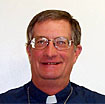In recent weeks a vibrant presidential campaign was threatened with being derailed by, of all things, the words of the candidate’s pastor.
In all fairness to Reverend Jeremiah Wright, few preachers would want their life’s work–or even a single sermon for that matter–characterized by a single YouTube sound bite (although Reverend Wright would have been wise to avoid the talk-show circuit). The furor generated from this episode in American politics also raises the question of the degree to which a parishioner, whether a public figure like Senator Barack Obama or a less public citizen, holds a responsibility for what might be proclaimed from the pulpit.
Perhaps, though, the ultimate question is how a preacher addresses the issues of the body politic. Many would argue that politics have absolutely no place as the preacher seeks to proclaim the word of God. On the other hand, those who preach might consider their calling to be speaking a prophetic word. Issues raised in the public sector, even or especially in an election year, are fair fodder in this proclamation. Separation of church and state is, after all, a secular construct. The prophets of the Old Testament never found themselves bound by such proscriptions. For the prophet, faith and life are inseparable, whether the issues arise from the Lord’s house or from the White House.
Still many a preacher would steer wide of taking a stand on anything that might be construed as “political.” For some, this may well be motivated by a concern for job security. It might seem more expedient to avoid political discussions, rather than risking that someone in the congregation might take offense. Such reluctance is understandable, for everyone knows that there are two topics to avoid in polite conversation: religion and politics. Preachers have no qualms about violating the first of those prohibitions; with the second they are more squeamish.
Clearly there are limits. IRS regulations prohibit the endorsement of any candidate and such an endorsement would threaten the tax exempt status of a faith community that takes that path. Some have chosen to circumvent those rules by offering “voter guides,” although they have been taken to task (and to court!) since these guides’ preferences for particular candidates or parties were thinly veiled. Nevertheless, it seems that, if the church wishes to be relevant, it is not only desirable but even necessary that the issues that impact people’s lives (the economy, gas prices) and issues of justice (health care, immigration) are addressed.
How does one faithfully address politics from the pulpit? Perhaps one begins with the heart of our proclamation, that Jesus Christ is Lord and that the church embodies his presence to the world. When a political party or candidate dares to make a claim upon this exclusive province of the church by asserting a monopoly on morality and values, the church rightly points again to Christ as the locus of God’s saving action. Our loyalty ultimately belongs to Christ, and we are well reminded that the reign and rule of God comes not via the political process but through Word and Sacrament–the presence of Christ–by the power of the Spirit and in the grace of God who creates and re-creates in a broken world.
Often the tension in such endeavors arises from “speaking the truth in love,” as we are reminded in the Letter to the Ephesians (Eph 4:15), and “calling a thing what it is,” as the theology of the cross compels us to do. Love of God and love of neighbor allow us to speak to issues that genuinely influence the well-being of those in our community and in our world. At times, a call to repentance may be justified. Such calls rarely will win you popularity contests. Jerusalem always stones the prophets, and the righteous are easily offended when their unrighteousness is exposed. Nevertheless, the invitation to repentance, when offered with humility and when reinforced by the word, can be a powerful tool.
Faith proclaims God as Creator of all and Jesus as Lord of all. Christ’s rule extends over all things, including thrones, dominions, rulers, and powers. Issues of faith have become a part of the American political landscape. As people weigh the issues set forth on that horizon, God’s voice, in law and gospel, yearns to be part of the conversation.

